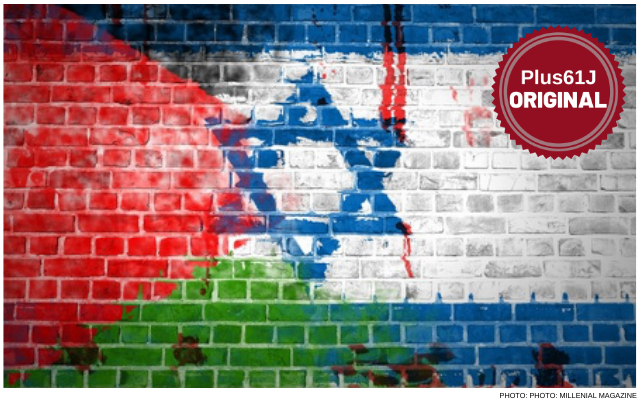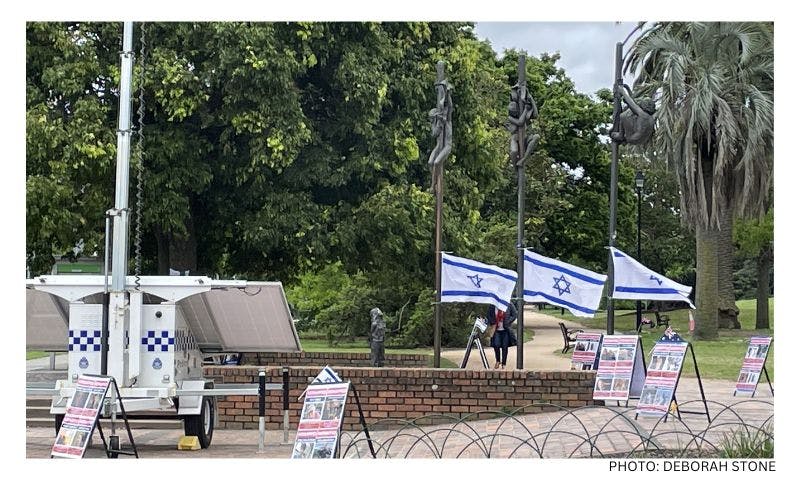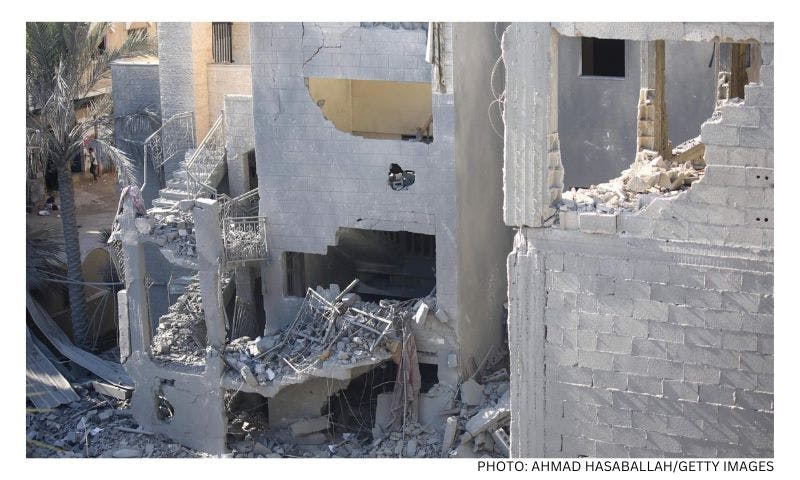Published: 28 April 2020
Last updated: 4 March 2024
AS A LEFT-WING ZIONIST, the subject of independence is a tricky one. Once a year as a country we unfurl our flags, set up a barbecue, turn our speakers high, and celebrate the 14th of May 1948, the day a 2000-year-old prayer was answered and the State of Israel was formed.
Herzl’s dream of modern Zionism came to fruition in the shadow of the Holocaust and coincided with the expulsion of Mizrahi and Sephardi Jews from communities across the Middle East and North Africa. The long and bitter Independence war was urgent, violent, and deadly. It was brutal on all fronts.
The cost of lives was heavy, hundreds perished defending a country they would never get to enjoy. We commemorate these deaths on Yom Hazikaron to make sure that we never forget the price we had to pay to stand where we are today.
But the creation of the State of Israel brought with it a lot more baggage than Herzl ever intended. For along with the freedom of the Jewish people came uneven power structures, ones that play out in our society until today.
The first, most immediate inequality in the newly formed State was the one between Ashkenazim and Mizrahim.
For the first 30 years of her existence, Israel was led exclusively by leaders from Mapai and her successor Ha’avodah. These socialist parties, whilst passionate about issues such as economic reform, education, and healthcare, fell extremely short when it came to dealing with racism against Mizrahim.
In the early days of Israel’s creation, there was an overwhelming feeling of Ashkenazi superiority, with Israelis from Middle Eastern countries seen as lower, less educated, and less civilised. Although many feel this problem is long forgotten in the annals of history, as recently as 2005 Ha’avodah has had to confront its racist roots.
When the announcement of Moroccan-born Amir Peretz’s new position as Labor party leader was met with disdain and a drop in membership numbers, the Israeli Left had to ask itself what it is still getting wrong, all these years later.
How do we balance our love for Israel and our despair at her treatment of minorities? How do we celebrate independence? This question becomes trickier as we look to the events happening around us today.
Unfortunately, inequality in Israel hasn’t stopped at infighting between different Jewish communities. When Jewish Israelis celebrate Independence Day this week, Palestinians will mourn the ‘Nakba’, the 1948 war that saw more than 700,000 Palestinian Arabs forced out of their homes, hundreds of villages depopulated and destroyed, and thousands killed. To this day a series of laws ensure that they are stopped from returning to the places their families called home for generations.
Far beyond that, they are unable to receive citizenship on their own land, and across the region from Gaza to Lebanon there are still millions living in refugee camps. Despite testimonies from survivors, large scale international pressure, and immeasurable amounts of evidence, Israel continues to evade acknowledging the full measure of the actions taken against Palestinians in the War of Independence.
In 2011 the Likud majority government passed the Nakba Law, a bill prohibiting education on the displacement, murder, and systematic oppression of Palestinians from 1948 onwards. Institutions teaching or commemorating it in any way faced budget cuts and removal of funds, as well as gaslighting and intense pressure from powerful bodies.
In 2018 another bill was passed, one referred to as the Nation State Law. It was immediately met with heavy criticism due to its implication that non-Jewish citizens will be considered second class, and not treated as equals.
This law was met with outrage, particularly from the Druze communities, who have always considered themselves Zionists, and contribute to the state in just as many ways as their Jewish counterparts.
These two laws, although recent, reflect a 72-year struggle to balance Zionism with an inclusive democracy for all.
[gallery columns="1" size="large" ids="35151"]
The arguments don’t stop at just Israeli citizens either. Over the past decade Israel has seen some 30,000 asylum seekers pass through her borders, predominantly from the African countries of Sudan and Eritrea.
Whereas Israeli law is clear in that all Jews are eligible for citizenship, it stops short at detailing what will occur when people of other religions arrive in Israel, fleeing the same levels of persecution as Jews encountered for over 2000 years?
I will celebrate the fact that Jews have a country to turn to when persecution gets too much, at the same time as I mourn that our country is actively against doing for others what we needed done for ourselves.
The response to this question has been made abundantly clear, as Israel has repeatedly denied refugee status to all but a few individuals and has made repeated and ongoing attempts to offload asylum seekers to various countries in the African continent.
So where does that leave us? How do we, as a left-wing Jews, Israeli citizens, balance our love for Israel and our despair at her treatment of minorities? How do we celebrate independence? This question becomes trickier as we look to the events happening around us today.
With every passing year Israel inches further and further past the point of no return when it comes to the treatment of Palestinians. After a year of endless elections and failed negotiations, Netanyahu and Gantz reached an agreement to form a unity government.
Despite the hundreds of other pressing issues they had to attend to, one of their first statements was to reassure the public not to worry, they would start annexing parts of the Jordan Valley in July, subject to US approval.
While the specifics and ramifications of this deal are still blurry, it can only be a bad thing. It represents an end to the two-state solution, a clear violation of international law, and pushes Israel off the edge and into the abyss of illegal activity and suppression of human rights.
How do we celebrate independence when it is made abundantly clear time and again that it is coming at the cost of someone else’s freedom?
I have not found the answer to be a simple one. Whilst I will unfurl my Israeli flag with the rest of the country this week, I will take a moment, pause, and remember all the work we have left to do. I will celebrate the fact that Jews have a country to turn to when ongoing persecution gets too much, at the same time as I mourn that our country cannot do, and is actively against doing, for others what we needed done for ourselves.
I will celebrate the independence we have been granted. I will be grateful for what was made possible for the Jews in the past, at the same time as I look towards the future and the work we have left to do to grant these same freedoms and rights to the people we share this piece of land with.
Photo: Millennial magazine




